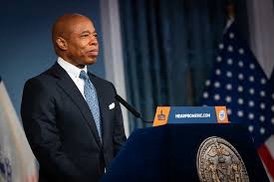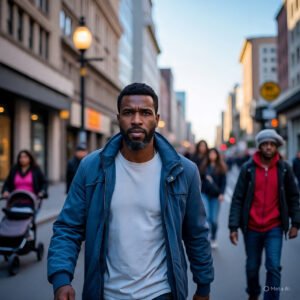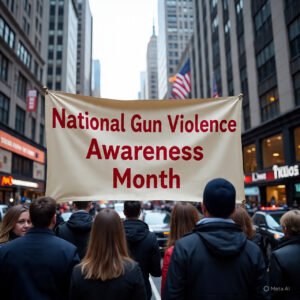Mayor Eric Adams’ Community OpEd: A Budget That Prioritizes Working-Class New Yorkers and Seeks to Make Our City More Affordable

New Yorkers deserve a city budget that delivers for them and tackles our affordability crisis head-on. Alongside Speaker Adams and our City Council partners, we are proud to announce the passage of a $112.4 billion Adopted Budget that invests in the future of our city and the people who make New York the greatest city in the world.
Thanks to our strong fiscal management, as well as better-than-expected revenue growth, we have passed a collaborative budget that addresses the three things that cost New Yorkers the most: childcare, health care, and housing. What’s more is, this was done despite facing unprecedented challenges, including a $7.1 billion budget gap, an international humanitarian crisis that has already cost our city $4.9 billion and is expected to cost billions more, and hundreds of millions of short-term stimulus dollars previously used to fund crucial long-term programs — a major feat.
So, what does the city’s budget deliver for you?
We are investing $100 million in early childhood education to reimagine the outdated 3-K system that was no longer working for working-class families. With a $20 million investment for up to 1,700 new seats this school year, we will make sure the seats are filled and children and families are served immediately. We’re also going further to ensure 3-K is more equitable than ever, with additional investments totaling $80 million for extended day seats and to serve undocumented families and students with disabilities.
Additionally, we are deepening our commitment to our public education system with over $600 million to protect programs previously funded with short-term federal stimulus dollars like teacher recruitment, restorative justice, computer science and arts programming, and more. And, because we want our children to start out ahead in the coming school year, we are investing $75 million to ensure schools do not lose funding even if they face declining enrollment.
We know that our investments in young people don’t end when the school day runs out. That is why we are restoring extended days for Summer Rising, Friday programming for middle school Summer Rising participants, and supporting community schools. This allows young people to learn and grow during the summer, and families to work without worrying about their kids. For older students, we are funding essential programs like CUNY ACE, CUNY STEM, and Brooklyn Recovery Corps at Medgar Evers College.
Our cultural institutions and our libraries are also a critical part of our city’s social fabric, and with the City Council, we are investing $53 million in our cultural institutions. And we know that our libraries provide a lifeline to countless communities, so we are putting over $58 million back into their operations, so they can keep their doors open seven days a week and provide the services New Yorkers rely on.
Public safety has been our top priority from the start, and one of the ways we’re protecting New Yorkers is by stopping illegal cannabis sales. This budget allows us to continue our crackdown on illegal cannabis sales while supporting legal outlets.
We are also continuing to support our efforts to make our streets safer by providing funds for staff positions at our new 116th Precinct in Queens, which is due to open this fall, and by funding security at 55 New York City Housing Authority (NYCHA) buildings to protect our senior residents.
New Yorkers love their parks, and we are taking care of our green spaces by funding additional park rangers, Green Thumb programs, and tree stump removals.
We are committed to improving the physical, emotional, and mental health of all New Yorkers. That is why our administration previously launched “HealthyNYC,” an ambitious plan to extend the lifespan of all New Yorkers. We have also released a sweeping mental health agenda with $20 million in commitments to invest in the mental health of children and families and canceled $2 billion in medical debt that New Yorkers owe. This year’s Adopted Budget further invests in programs to help keep New Yorkers healthy by expanding the Office of Health Care Accountability to bring rising health care costs down and ensure hospitals and health care providers are not gouging New Yorkers, as well as by investing in key services, such as HIV related programs.
Finally, affordable housing is critical to making our city more affordable and more livable. With this in mind, we have added $2 billion in capital funds to NYCHA and the Department of Housing Preservation & Development to develop more affordable housing. This will support our administration’s moonshot goal of building 500,000 new homes by 2032, as well as our commitment to transforming NYCHA so every New Yorker has a clean, safe place to live. This $2 billion investment will bring our investment in affordable housing over our current 10-year capital plan to more than $26 billion — a new record level.
Early in our administration, we made it clear that our mission is to support working-class New Yorkers by protecting public safety, investing in our economy, and making the city more livable. The budget we just passed delivers on that mission, as it helps us continue to build a city that is safer, cleaner, and more affordable for all New Yorkers.







